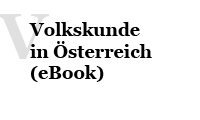11th SIEF INTERNATIONAL CONGRESS
Tartu, June 30 – July 4, 2013
CIRCULATION
Congress Announcement: Theme and CALL FOR PANELS
The SIEF 2013 Congress proposes to examine the stakes and implications of circulation. Circulation and its semantic siblings – flow, exchange and mobility – are the buzzwords around which interdisciplinary conversations across the humanities and social sciences are organized at the present moment, superseding the previous decade’s buzzword globalization, which in turn superseded postmodernity, which superseded nationalism and ethnicity – eventually taking us back to the concepts around which our fields were constituted, including transmission and diffusion. In fact, ethnologists and folklorists as well as cultural anthropologists have been thinking and writing about circulation, flow, exchange, travel, and mobility for a century and half.
This legacy bears revisiting. We are witnessing an unprecedented growth of networks, of new infrastructures and channels that circulate knowledge, expressions, images, and information at previously unthinkable speeds, ranges and intensities. This calls for a renewed interest in how cultural forms and expressions are produced, retained, contested or consumed via these new circuits.
The questions raised by this new state of affairs affect every subfield of the ethnographic disciplines, and both age-old andemergent theoretical foci.
For example:
* Cultural transmission: How do the political, economic, and logistical complexities of circulation affect the constitution and codification of meanings?
* Participation and collective creativity: Does intensified circulation enable more and better participation by communities and individuals, or does it raise participation’s costs?
* Local communities: Have enhanced speed and new media degraded the quality of cultural interaction and exchange in existing communities, or have they contributed to promoting the local?
* Democracy and social justice: Does circulation suffocate or give rise to political possibilities?
* Aesthetic form and the nature of media and remediation: Are some kinds of circulation or certain cultural forms more viable than others?
* Cultural and social economies: How do different economies of circulation (commoditization, luxury goods, the culture and tourism industries, voluntary associations, open-access organizations, forms of the gift economy) affect its forms?
* Ideologies and identities: What mediations, mobilities, or imaginaries contextualize these processes?
* Cultural property, heritage policy, and other forms of cultural protection: What restricts the travel of cultural forms and what promotes their circulation?
* Migration studies: How does the travel of these forms relate to the movements of people?
Questions such as these stand as an open invitation to various theoretical and empirical interventions. As a thematic touchstone for panels and presentations, the Congress theme should be used to help imagineinformed and engaging entry points into theory or into current interdisciplinary conversations, while standing on firm ground in ethnology, folkloristics or cultural anthropology.
Call for Panels
We invite colleagues and scholars to propose panels and workshops that relate to the above described theme of the Congress. The call for panels and workshops is now open at http://www.siefhome.org/index.php?option=com_content&view=article&id=195&Itemid=51 and will run to 12 October 2012. All proposals must be submitted using our online form. Full information is given on the website.












